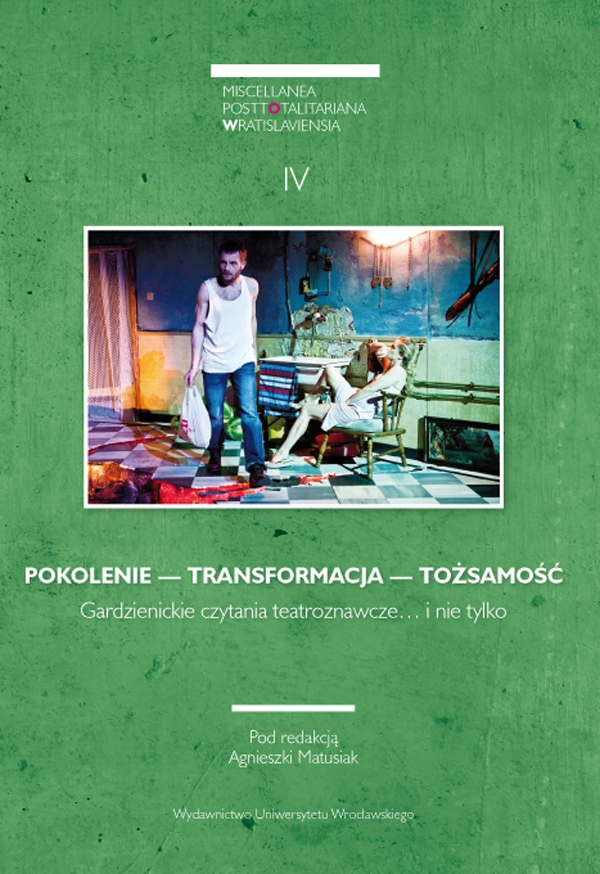

Artykuły

Generational differences in artistic representations of the experience of totalitarian past in the new Czech theatre.
The article presents an analysis of a number of Czech performances from the years 2007–2013 on the topic of the communist era and reflecting on the changes that have occurred over the past 25 years. Selected directors belong to three generations of artists: the ones already creating in the 1960s, the ones debuting just before or just after the Velvet Revolution and the ones beginning their career in 2000. The comparison of performances produced within a short time clearly shows the differences, both aesthetic and ideological, in the method of recognizing similar issues by the authors growing up in a completely different socio-political conditions. Works of the oldest generation, using conventional theatrical means, reveal the strongest judgmental tendencies, the need to show the ambiguous choices in black and white colors. The average generation contend with the legend of past years, asking difficult questions about the impact of the past on the shape of collective identity. The youngest generation, however, intentionally emphasize that their knowledge about communism is mediated, which encourages them to analyze the history and memory of their families in search of their own roots.
Generační rozdíly v uměleckém zobrazování zkušenosti totalitární minulosti v nejnovějším českém divadle.
Příspěvek obsahuje analýzu několika českých představení z let 2007–2013, jejichž tématem se stalo období komunismu a reflexe nad proměnami posledních 25 let. Vybraní režiséři patří ke třem generacím umělců: jedni inscenovali dlouho před rokem 1989, druzí debutovali krátce po sametové revoluci, zatímco třetí zahájili kariéru v roce 2000. Soubor představení vzniklých v malém časovém rozpětí výrazně ukazuje jak estetické, tak světonázorové rozdíly ve způsobu uchopení podobné tematiky autory, kteří vyrůstali ve zcela odlišných společensko-politických podmínkách. Díla nejstarší generace pomocí konvenčních divadelních prostředků projevují nejsilnější tendence posuzovat a odsuzovat, nutnost ukázat nejednoznačné volby v černo-bílých barvách. Střední generace se poměřuje s legendami minulých dob, pokládá obtížné otázky po vlivu minulosti na podobu kolektivní identity. Nejmladší tvůrci pak vědomě zdůrazňují, že jejich znalost komunismu je zprostředkovaná, což je vede k analyzování historie a rodinné paměti při hledání vlastních kořenů.